Ga. Appellate Practice § 12:4Georgia Appellate Practice With Forms
November 2016 Update
Christopher J. McFaddena0, Charles R. Shepparda1, Charles M. Cork IIIa2, George W. K. Snyder, Jr.a3, David A. Webstera4, Kelly A. Jenkinsa5
Chapter 12. Overview of the Appellate Process§ 12:4. Selecting the proper court—Particular types of cases
Before the Appellate Jurisdiction Reform Act of 2016, the Georgia Supreme Court had appellate jurisdiction over 10 categories of cases specified in the Georgia Constitution,(fn1) and the Court of Appeals had jurisdiction over the rest. The limits of each category were interpreted in numerous decisions, many of which are discussed in the remainder of this section, and many of which are obscure or debatable. The Appellate Jurisdiction Reform Act will change that allocation of appellate jurisdiction significantly, by shifting several categories of cases over to the Court of Appeals. This transfer will take effect for notices of appeal or applications to appeal that are filed on or after January 1, 2017. (fn2)
Constitutional questions.
The Supreme Court has exclusive appellate jurisdiction over cases calling for the construction of the Georgia Constitution (fn3) and cases in which the constitutionality of a law has been drawn in question. (fn4) This jurisdiction, which the Appellate Jurisdiction Reform Act does not alter, expressly extends to cases involving the constitutionality of ordinances. (fn5) Administrative regulations, however, are not laws within the meaning of the Constitution, and thus, the Court of Appeals has jurisdiction to resolve whether a particular regulation is constitutional.(fn6) In order to invoke the Supreme Court’s jurisdiction a constitutional question must be distinctly raised and ruled on by the trial court,(fn7) but an oral ruling is sufficient. (fn8) The question must also be timely raised; the Supreme Court will transfer cases involving constitutional questions that are untimely raised even if the trial court rules upon them.(fn9) The ruling must address the merits of the constitutional challenge; a ruling that the constitutional challenge was untimely does not confer jurisdiction upon the Supreme Court.(fn10) However, if the trial court also rules on the merits of the challenge as an alternative basis for its judgment, the Supreme Court has jurisdiction. (fn11) If a constitutional question is raised and ruled upon below, the Supreme Court has exclusive jurisdiction on appeal even if, upon consideration of the entire case, the Supreme Court determines that the case can be properly resolved without deciding the constitutional issue and declines to decide the constitutional issue.(fn12) The Supreme Court has jurisdiction over an appeal raising such constitutional questions even if appellate jurisdiction is based on a non-constitutional ruling, so long as the constitutional question is within the scope of pendent appellate jurisdiction under O.C.G.A. § 5-6-34(d). (fn13)
Mere mention of a constitutional principle will not bring a case within the jurisdiction of the Supreme Court. “The Court of Appeals has jurisdiction to decide questions of law that involve the application, in a general sense, of unquestioned and unambiguous provisions of the Constitution.” (fn14) After one challenge to the constitutionality of a statute has been considered and rejected by the Supreme Court, subsequent challenges on the same point are relegated to the Court of Appeals. (fn15) Different constitutional challenges to the same statute will be within the Supreme Court’s jurisdiction if the other criteria discussed above are met. (fn16)
The Supreme Court has overruled a line of cases that had interpreted transfers of cases to the Court of Appeals as implied holdings that there is no meritorious constitutional issue in the case.(fn17) For instance, the Court of Appeals may consider whether the evidence in the case should lead to a result different from the case in which the Supreme Court decided the constitutional point. (fn18)
Election contests.
The Supreme Court has exclusive appellate jurisdiction in all cases of election contest. (fn19) This jurisdiction, which the Appellate Jurisdiction Reform Act does not alter, extends to challenges to candidates for and results of elections. (fn20) It does not extend to other election-related issues, such as the qualifications of a voter.
Title to land.
After January 1, 2017, the Court of Appeals will have jurisdiction over appeals involving title to land. (fn21) Until then, the Supreme Court has jurisdiction over these cases. The Supreme Court’s jurisdiction over cases involving title to land has been described as limited to actions “such as ejectment and statutory substitutes, in which the plaintiff asserts a presently enforceable legal title against the possession of the defendant for the purpose of recovering the land.” (fn22) Other cases have conceived that jurisdiction more broadly so as to include actions to remove encumbrances from title. (fn23) These two understandings of the Supreme Court’s jurisdiction over cases involving title to land have yet to be reconciled. (fn24) Cases in which the right of possession and not title to land are in dispute are for the Court of Appeals. (fn25) Cases in which the issue on appeal does not involve a dispute over title, though the underlying case is entirely about title, belong in the Court of Appeals. (fn26)
A suit to cancel a deed or to declare it void for lack of valid consideration is not within the Supreme Court’s jurisdiction. (fn27) Likewise, a suit seeking to set aside a conveyance on grounds of fraud is not within the Supreme Court’s “title to land” jurisdiction. (fn28) A suit for specific performance of a real estate contract is not a suit concerning “title to land.” (fn29) A suit for reformation of a deed is not a case involving title to land. (fn30) An appeal calling for the court to construe a deed belongs in the Court of Appeals if the present title to the property does not turn on that construction. (fn31) Because easements do not affect title to property, the Court of Appeals has jurisdiction of cases concerning them. (fn32) Boundary-line cases are likewise within the province of the Court of Appeals, notwithstanding that such cases usually involve incidental issues relating to equitable relief. (fn33) In cases involving lis pendens, where the underlying issue is a legal question which does not involve title to land and which can be resolved without resort to equity, the Court of Appeals has jurisdiction. (fn34) Appeals involving foreclosure proceedings do not involve title to land. (fn35) The Supreme Court has transferred to the Court of Appeals an appeal of an action seeking to set aside a tax sale. (fn36) Likewise, the Court of Appeals has jurisdiction over appeals in suits seeking to set aside fraudulent conveyances. (fn37) The Court of Appeals has jurisdiction over condemnation cases in which “a recovery of land is not being sought” and the only issue “for determination is the amount of just and adequate compensation that must be paid for that condemned property.” (fn38)
However, partitioning does involve title to land, and appellate jurisdiction in such cases rests in the Supreme Court.(fn39) Appeals on the merits of suits seeking to remove clouds on title belong in the Supreme Court. (fn40) A suit to establish priority among the liens on property, though, lies within the jurisdiction of the Court of Appeals. (fn41)
Equity cases.
After January 1, 2017, the Court of Appeals will have jurisdiction over appeals in all equity cases “except those cases concerning proceedings in which a sentence of death was imposed or could be imposed and those cases concerning the execution of a sentence of death.” (fn42) Until then, the Supreme Court has jurisdiction over these cases. The Supreme Court has jurisdiction where the issue on appeal involves the legality or propriety of equitable relief. (fn43) If the appeal raises questions about the scope of equitable relief granted below or how the superior court molded the relief, the appeal is within the Supreme Court’s jurisdiction. (fn44) It has jurisdiction over an injunction that is entered upon the application of equitable principles (fn45) and an action to obtain the equitable relief of virtual adoption. (fn46)
The Supreme Court has drawn a “distinction between an equity case and a case wherein equitable relief was sought.” (fn47) An appeal is not an “equity case” for purposes of the Supreme Court’s appellate jurisdiction if the award of injunctive or other equitable relief is or would be merely ancillary to the determination of legal rights, and the only substantive contentions relate to issues of law; in such cases, appellate jurisdiction belongs in the Court of Appeals.(fn48) Similarly, a trial court’s ruling on an equitable issue does not bring a case within the Supreme Court’s jurisdiction unless the equitable ruling is appealed.)fn49) Raising an equitable defense in a case otherwise within the jurisdiction of the Court of Appeals does not bring the case within the jurisdiction of the Supreme Court.(fn50) Thus, a claim that the superior court should have exercised equitable discretion not to grant equitable relief that would otherwise follow upon resolution of the underlying legal issue belongs in the Court of Appeals. (fn51)
Accordingly, the Supreme Court has transferred to the Court of Appeals actions for declaratory judgments,(fn52) boundary-line cases,(fn53) actions to enforce non-compete provisions in employment agreements,(fn54) actions by homeowners to enforce restrictive covenants, (fn55) actions to impose an implied or constructive trust on real or personal property,(fn56) actions calling for an interpretation of trust terms,(fn57) actions seeking to enforce equitable subrogation,(fn58) actions to reform deeds or contracts,(fn59) actions to set aside or cancel deeds,(fn60) and actions for specific performance of a real estate contract.(fn61) By a 4-3 vote, the Supreme Court transferred to the Court of Appeals a “dispute involving the imposition of a constructive trust on certain real property” in which it appeared to the Court of Appeals “that all the issues here are equitable in nature.” (fn62) In dissent, three justices have expressed doubt whether any cases at all remain within the Supreme Court’s equity jurisdiction.(fn63)
Cases involving wills.
After January 1, 2017, the Court of Appeals will have jurisdiction over appeals involving wills. (fn64) Until then, the Supreme Court has jurisdiction over these cases. The Supreme Court has narrowly construed the constitutional provision assigning it jurisdiction of “all cases involving wills.” (fn65) That provision refers only to “those cases in which the will’s validity or meaning is in question.” (fn66) An appeal from the dismissal of a caveat to a will on grounds that it was untimely does not come within the Supreme Court’s jurisdiction. (fn67) Cases involving the appointment of an executor belong in the Court of Appeals. (fn68) The Supreme Court has transferred a case to the Court of Appeals involving the characterization of assets of the estate as coming within the meaning of a term of the will, even though that characterization would necessarily involve deciding the meaning of the term as an ancillary matter. (fn69)
Extraordinary remedies.
After January 1, 2017, the Court of Appeals will have jurisdiction over appeals in all cases involving extraordinary remedies “except those cases concerning proceedings in which a sentence of death was imposed or could be imposed and those cases concerning the execution of a sentence of death.” (fn70) Until then, the Supreme Court has jurisdiction over these cases. Cases involving the grant or denial of writs of mandamus or prohibition differ from other topics under the Supreme Court’s constitutional jurisdiction in that the Supreme Court has jurisdiction over such cases without regard to the underlying subject matter or the legal issues raised. (fn71) However, where the plaintiff has sought relief in addition to mandamus relief, and the appeal relates only to the non-mandamus relief, the Court of Appeals has jurisdiction over the appeal. (fn72) If the extraordinary remedy sought is not an appropriate remedy in the case, the Supreme Court does not have jurisdiction on that basis. (fn73) If the ruling alleged to be a denial of mandamus relief is more properly characterized as a denial of a motion in a criminal case, jurisdiction lies in the Court of Appeals.)fn74)
Divorce and alimony cases.
After January 1, 2017, the Court of Appeals will have jurisdiction over appeals involving divorce and alimony cases. (fn75) Until then, the Supreme Court has jurisdiction over these cases. The provision assigning “all divorce and alimony cases” to the Supreme Court (fn76) uses different, narrower language than the provision that subjects all “domestic relations cases” to the discretionary appeal procedure. (fn77) The Court of Appeals has jurisdiction over all domestic relations cases other than “divorce and alimony” cases. (fn78) Most notably, appeals involving child custody are to the Court of Appeals unless the appeal also involves a judgment for divorce and alimony. (fn79) The same is true of child support appeals: they belong in the Supreme Court if they arise in the context of a divorce or alimony case, but the appeal goes to the Court of Appeals otherwise. (fn80) Appeals in modification cases will go to the Supreme Court if the original award was a “divorce or alimony” case. (fn81) Suits to domesticate a foreign divorce decree or to enforce child support provisions in foreign divorce decrees, even by contempt, are deemed suits on foreign judgments, not divorce or alimony cases within the meaning of the Constitution, and jurisdiction of such appeals is in the Court of Appeals. (fn82) Jurisdiction over appeals from orders under the Family Violence Act lies in the Court of Appeals. (fn83)
In cases where a complaint for divorce is combined with a tort, contract or other claim, if an interlocutory appeal “involves only a contract or tort claim or any matter other than divorce or alimony, then the appeal does not constitute a divorce or alimony case within the meaning of our state constitution” and appellate jurisdiction is in the Court of Appeals. (fn84) Contempt actions that are ancillary to the underlying divorce action and that involve issues other than custody fall within the divorce and alimony jurisdiction of the Supreme Court. (fn85) Resolution of property disputes between divorced spouses that were unresolved in an earlier divorce suit is not within the Supreme Court’s jurisdiction. (fn86)
Murder cases.
Where murder and other charges are brought in a single indictment, but severed for trial, they remain severed on appeal. In such a case, jurisdiction over convictions on the murder charge is in the Supreme Court, and jurisdiction over convictions on the other charges is in the Court of Appeals.(fn87) On the other hand, where murder and other charges are to be tried together jurisdiction over a pre-conviction appeal is in the Supreme Court. (fn88) Where murder and other charges have been tried together an appeal relating only to the non-murder charges will be in the Supreme Court if the murder count remains pending in the court below. (fn89)
Footnotes
a0Judge, Georgia Court of Appeals. Member of the Atlanta and DeKalb Bars.
a1Member of the Augusta Bar.
a2Member of the Macon Bar Association.
a3Judicial Staff Attorney. Member of the DeKalb Bar.
a4Member, State Bar of Georgia.
a5Assistant District Attorney, Middle Judicial District.
1 Ga. Const. 1983, Art. VI, § VI, ¶¶II, III.
2 Williford v. Brown, 299 Ga. 15, 785 S.E.2d 864 (2016).
3 State Dept. of Corrections v. Developers Sur. and Indemn. Co., 295 Ga. 741, 763 S.E.2d 868 (2014).
4 Ga. Const. 1983, Art. VI, § VI, ¶II.
5 Willis v. City of Atlanta, 285 Ga. 775, 684 S.E.2d 271 (2009).
6 Georgia Dept. of Community Health v. Northside Hosp., Inc., 324 Ga. App. 326, 750 S.E.2d 401 (2013), judgment rev’d on other grounds, 295 Ga. 446, 761 S.E.2d 74 (2014). Contrast State v. International Keystone Knights of the Ku Klux Klan, Inc., 788 S.E.2d 455 (Ga. 2016) (Supreme Court has jurisdiction over a constitutional challenge to denial of a permit for roadway sign under agency regulations).
7 Jones v. State, 292 Ga. 656, 740 S.E.2d 590 (2013); Kendrick v. State, 335 Ga. App. 766, 782 S.E.2d 842 (2016); Dailey v. Abdul-Samed, 319 Ga. App. 380, 736 S.E.2d 142 (2012).
8 Jenkins v. State, 284 Ga. 642 (1), 670 S.E.2d 425 (2008).
9 Brinkley v. State, 291 Ga. 195, 728 S.E.2d 598 (2012); Barrow v. Mikell, 331 Ga. App. 547, 771 S.E.2d 211 (2015), rev’d on other grounds, 298 Ga. 429, 782 S.E.2d 439 (2016).
10 Rooney v. State, 287 Ga. 1, 690 S.E.2d 804 (2010).
11 Rooney v. State, 287 Ga. 1, 690 S.E.2d 804 (2010).
12 Harrison v. Wigington, 269 Ga. 388, 497 S.E.2d 568 (1998).
13 Malloy v. State, 293 Ga. 350, 744 S.E.2d 778 (2013).
14 Pollard v. State, 229 Ga. 698, 194 S.E.2d 107 (1972); Kroupa v. Cobb County, 262 Ga. 451, 421 S.E.2d 283 (1992).For a case in which the Supreme Court held that Court of Appeals overstepped that authority, see City of Decatur v. DeKalb County, 284 Ga. 434, 668 S.E.2d 247 (2008). For a commentary criticizing both the substance and the tone of City of Decatur see Kenneth A. Hindman, Supreme Court Muddles Rules for Exclusive Constitutional Jurisdiction: A Comment on City of Decatur v. DeKalb County, The Appellate Review, Vol. 8, No. 1, Winter 2008, available at http://www.gabar.org/sections/section_web_pages/appellate_practice_section/section_newsletters/.
15 Williams v. State, 273 Ga. 848, 546 S.E.2d 522 (2001). Although the transfer of an appeal by the Supreme Court to the Court of Appeals is not a rejection on the merits of a constitutional question, it is often “a final determination that no constitutional question was in fact properly raised.” Nahid v. State, 276 Ga. App. 687, 624 S.E.2d 264 (2005); Hughes v. State, 266 Ga. App. 652, 598 S.E.2d 43 (2004); Schmidt v. Feldman, 230 Ga. App. 500, 497 S.E.2d 23 (1998).
16 Zarate-Martinez v. Echemendia, 788 S.E.2d 405 (Ga. 2016).
17 Atlanta Independent School System v. Lane, 266 Ga. 657, 469 S.E.2d 22, 108 Ed. Law Rep. 1297 (1996). But see Braden v. Bell, 222 Ga. App. 144, 473 S.E.2d 523 (1996), as to the extent of the jurisdiction of the Court of Appeals over constitutional questions and as to the practical effect of the Atlanta Independent ruling. Notwithstanding the Atlanta Independent ruling, the net effect of these transfers is very often that the only written appellate opinion as to a constitutional issue is from a court whose only authority is to reject the argument. See Braden v. Bell, 222 Ga. App. 144, 473 S.E.2d 523 (1996) (Beasley, C.J., concurring).
18 Head v. State, 303 Ga. App. 475, 693 S.E.2d 845 (2010).
19 Ga. Const. Art. VI, § VI, ¶II.
20 Cook v. Board of Registrars of Randolph County, 291 Ga. 67, 727 S.E.2d 478 (2012).
21 O.C.G.A. § 15-3-3.1(a)(1).
22 Graham v. Tallent, 235 Ga. 47, 218 S.E.2d 799 (1975) (surveying cases excluded and included within the “title to land” provision and providing the focus on ejectment-like actions); Navy Federal Credit Union v. McCrea, 337 Ga. App. 103, 786 S.E.2d 707 (2016); Cole v. Cole, 205 Ga. App. 332, 422 S.E.2d 230 (1992).
23 Hunstein v. Fiksman, 279 Ga. 559, 615 S.E.2d 526 (2005) (action to invalidate liens on property); Tharp v. Harpagon Co., 278 Ga. 654, 604 S.E.2d 156 (2004) (action to remove cloud from title).
24 In Stearns Bank, N.A. v. Dozetos, 328 Ga. App. 106, 761 S.E.2d 520 (2014), the Supreme Court transferred to the Court of Appeals the appeal of a case in which the plaintiff sought to invalidate an encumbrance on land, pursuant to the standard established Graham v. Tallent, 235 Ga. 47, 218 S.E.2d 799 (1975), but not apparently addressing its own rulings in Hunstein v. Fiksman, 279 Ga. 559, 615 S.E.2d 526 (2005), and Tharp v. Harpagon Co., 278 Ga. 654, 604 S.E.2d 156 (2004).
25 Jordan v. Atlanta Neighborhood Housing Services, Inc., 251 Ga. 37, 302 S.E.2d 568 (1983) (appeal of a dispossessory proceeding filed after a foreclosure under a deed to secure to debt); Hall v. Hall, 303 Ga. App. 434, 693 S.E.2d 624 (2010) (distinguishing ejectment actions and dispossessories).
26 Boyd v. JohnGalt Holdings, LLC, 290 Ga. 658, 724 S.E.2d 395 (2012) (appeal from an order dismissing an appeal of title-related claims is not an appeal in which title is in dispute); DOCO Credit Union v. Chambers, 330 Ga. App. 633, 768 S.E.2d 808 (2015) (appeal deciding whether a quiet title action should be abated or dismissed for failure to state a claim, rather than title to land itself, belongs in the Court of Appeals).
27 Slaick v. Arnold, 307 Ga. App. 410, 705 S.E.2d 206 (2010); McCall v. Williams, 326 Ga. App. 99, 756 S.E.2d 217 (2014).
28 Holloway v. U.S. Bank Trust Nat. Ass’n, 317 Ga. App. 452, 731 S.E.2d 763 (2012).
29 Decision One Mortg. Co., LLC v. Victor Warren Properties, Inc., 304 Ga. App. 423, 696 S.E.2d 145 (2010).
30 Kim v. First Intercontinental Bank, 326 Ga. App. 424, 756 S.E.2d 655 (2014).
31 Wilkes v. Fraser, 324 Ga. App. 642, 751 S.E.2d 455 (2013).
32 Lovell v. Rea, 278 Ga. App. 740, 629 S.E.2d 459 (2006); Krystal Co. v. Carter, 256 Ga. 43, 343 S.E.2d 490 (1986); Roberts v. Roberts, 206 Ga. App. 423, 425 S.E.2d 414 (1992); Davis v. Foreman, 311 Ga. App. 775, 717 S.E.2d 295 (2011); Sermons v. Agasarkisian, 323 Ga. App. 642, 746 S.E.2d 596 (2013).
33 Beauchamp v. Knight, 261 Ga. 608, 409 S.E.2d 208 (1991); Hall v. Christian Church of Georgia, Inc., 280 Ga. App. 721, 634 S.E.2d 793 (2006); Fendley v. Weaver, 121 Ga. App. 526, 174 S.E.2d 369 (1970).
34 Everchanged, Inc. v. Young, 273 Ga. 474, 542 S.E.2d 505 (2001).
35 Graham v. Tallent, 235 Ga. 47, 218 S.E.2d 799 (1975); Arrington v. Reynolds, 274 Ga. 114, 549 S.E.2d 401 (2001).
36 Edwards v. Heartwood 11, Inc., 264 Ga. App. 354, 355, 590 S.E.2d 734, 736 (2003).
37 Kent v. White, 279 Ga. App. 563, 631 S.E.2d 782 (2006).
38 Georgia Dept. of Transp. v. Meadow Trace, Inc., 278 Ga. 423, 424, 603 S.E.2d 257, 258 (2004).
39 Wallace v. Wallace, 260 Ga. 400, 396 S.E.2d 208 (1990).This applies to both statutory and equitable partition actions. Ononye v. Ezeofor, 287 Ga. 201, 695 S.E.2d 234 (2010); Contrast Davis v. Davis, 287 Ga. 897, 700 S.E.2d 404 (2010) (appeal of partitioning of personal property is not within the Supreme Court’s appellate jurisdiction).
40 Hunstein v. Fiksman, 279 Ga. 559, 615 S.E.2d 526 (2005); Tharp v. Harpagon Co., 278 Ga. 654, 604 S.E.2d 156 (2004). But see Stearns Bank, N.A. v. Dozetos, 328 Ga. App. 106, 761 S.E.2d 520 (2014), in which the Supreme Court transferred such a case to the Court of Appeals, taking a narrower view of its jurisdiction over title to land.
41 915 Indian Trail, LLC v. State Bank and Trust Co., 328 Ga. App. 524, 759 S.E.2d 654 (2014).
42 O.C.G.A. § 15-3-3.1(a)(2).
43 Williford v. Brown, 299 Ga. 15, 785 S.E.2d 864 (2016) (availability of novel equitable relief); Metro Atlanta Task Force for the Homeless, Inc. v. Ichthus Community Trust, 298 Ga. 221, 780 S.E.2d 311 (2015) (lifting stay against dispossessory action); Abel & Sons Concrete, LLC v. Juhnke, 295 Ga. 150, 757 S.E.2d 869 (2014) (appeal of injunctive relief based on procedural impropriety in granting it without notice); Alstep, Inc. v. State Bank and Trust Co., 293 Ga. 311, 745 S.E.2d 613 (2013) (challenge to propriety of appointing a receiver); Kemp v. Neal, 288 Ga. 324, 704 S.E.2d 175 (2010); Lamar County v. E.T. Carlyle Co., 277 Ga. 690, 594 S.E.2d 335 (2004).
44 Danforth v. Apple Inc., 294 Ga. 890, 757 S.E.2d 96 (2014); Kemp v. Neal, 288 Ga. 324, 704 S.E.2d 175 (2010).
45 Tunison v. Harper, 286 Ga. 687, 690 S.E.2d 819 (2010).
46 Morgan v. Howard, 285 Ga. 512, 678 S.E.2d 882 (2009).
47 Saxton v. Coastal Dialysis and Medical Clinic, Inc., 267 Ga. 177, 179, 476 S.E.2d 587 (1996). The purpose of the distinction is to narrow the Supreme Court’s equitable jurisdiction without narrowing the range of cases directly appealable pursuant to O.C.G.A. § 5-6-34(a)(4). See §§ 12:6 to 12:7 infra.
48 Kemp v. Neal, 288 Ga. 324, 704 S.E.2d 175 (2010), finding jurisdiction in the Supreme Court—by a vote of 4-to-3, over vigorous dissent – because determination of “precisely how the trial court should have molded the equitable relief … does not flow directly or automatically from the legal conclusion that [Appellants were entitled to relief]. Review of that equitable issue would require examination of the trial court’s exercise of discretion and depends upon equitable considerations.” See also Sentinel Offender SVCS., LLC v. Glover, 296 Ga. 315, 766 S.E.2d 456 (2014) (finding jurisdiction when permanent injunction “was not a ‘matter of routine once the underlying issues of law were resolved’”); Durham v. Durham, 291 Ga. 231, 728 S.E.2d 627 (2012); Trotman v. Velociteach Project Management, LLC, 311 Ga. App. 208, 715 S.E.2d 449 (2011); Reeves v. Newman, 287 Ga. 317, 695 S.E.2d 626 (2010); Pittman v. Harbin Clinic Professional Ass’n, 263 Ga. 66, 428 S.E.2d 328 (1993); Krystal Co. v. Carter, 256 Ga. 43, 343 S.E.2d 490 (1986); Beauchamp v. Knight, 261 Ga. 608, 409 S.E.2d 208 (1991). Cf. Electronic Data Systems Corp. v. Heinemann, 268 Ga. 755, 493 S.E.2d 132 (1997) (acknowledging “that the meaning of equity jurisdiction remains subject to confusion and frustration”). See further Johns v. Morgan, 281 Ga. 51, 635 S.E.2d 753 (2006). But see Sparks v. Jackson, 289 Ga. App. 840, 658 S.E.2d 456 (2008) (arguing that transfer from the Supreme Court eliminated issue of whether proceeds were divided equitably).
49 Clay v. Department of Transp., 198 Ga. App. 155, 400 S.E.2d 684 (1990). See also Strickland v. McElreath, 308 Ga. App. 627, 708 S.E.2d 580 (2011) (Smith, J., concurring) (observing seeming inconsistency in Supreme Court’s transfer of case to the Court of Appeals where the issue on appeal required characterizing the case as equitable for purposes of special venue provision).
50 Capitol Fish Co. v. Tanner, 192 Ga. App. 251, 384 S.E.2d 394 (1989).
51 Decision One Mortg. Co., LLC v. Victor Warren Props., Inc., 304 Ga. App. 423, 696 S.E.2d 145 (2010).
52 Wilkes v. Fraser, 324 Ga. App. 642, 751 S.E.2d 455 (2013).
53 Beauchamp v. Knight, 261 Ga. 608, 409 S.E.2d 208 (1991).
54 Pittman v. Harbin Clinic Professional Ass’n, 263 Ga. 66, 428 S.E.2d 328 (1993); Drawdy CPA Services, P.C. v. North GA CPA Services, P.C., 320 Ga. App. 759, 740 S.E.2d 712 (2013).
55 Redfearn v. Huntcliff Homes Ass’n, Inc., 271 Ga. 745, 524 S.E.2d 464 (1999).
56 Davis v. Davis, 287 Ga. 897, 700 S.E.2d 404 (2010); Reeves v. Newman, 287 Ga. 317, 695 S.E.2d 626 (2010).
57 Durham v. Durham, 291 Ga. 231, 728 S.E.2d 627 (2012); Rose v. Waldrip, 316 Ga. App. 812, 730 S.E.2d 529 (2012).
58 Kim v. First Intercontinental Bank, 326 Ga. App. 424, 756 S.E.2d 655 (2014).
59 Kim v. First Intercontinental Bank, 326 Ga. App. 424, 756 S.E.2d 655 (2014); First Chatham Bank v. Liberty Capital, LLC, 325 Ga. App. 821, 755 S.E.2d 219 (2014).
60 McCall v. Williams, 326 Ga. App. 99, 756 S.E.2d 217 (2014).
61 Decision One Mortg. Co., LLC v. Victor Warren Properties, Inc., 304 Ga. App. 423, 696 S.E.2d 145 (2010); Lee v. Green Land Co., Inc., 272 Ga. 107, 527 S.E.2d 204 (2000).
62 Troutman v. Troutman, 297 Ga. App. 62, n.1, 676 S.E.2d 787 (2009).
63 Lee v. Green Land Co., Inc., 272 Ga. 107, 527 S.E.2d 204 (2000) (Carley, J., dissenting, joined by Hunstein J.; Thompson, J., dissenting, joined by Hunstein, J.); Redfearn v. Huntcliff Homes Ass’n, Inc., 271 Ga. 745, 524 S.E.2d 464 (1999) (Carley, J., dissenting, joined by Hunstein, J.). But see Agan v. State, 272 Ga. 540, 533 S.E.2d 60 (2000), in which the majority did not address jurisdiction but appears to have exercised equitable jurisdiction and two justices dissented on the basis that jurisdiction was properly in the Court of Appeals.
64 O.C.G.A. § 15-3-3.1(a)(3).
65 Ga. Const. 1983, Art. VI, § VI, ¶III(3).
66 In re Estate of Lott, 251 Ga. 461, 306 S.E.2d 920 (1983).
67 In re Estate of Loyd, 328 Ga. App. 287, 761 S.E.2d 833 (2014).
68 In re Estate of Farkas, 325 Ga. App. 477, 753 S.E.2d 137 (2013).
69 Simmons v. England, 323 Ga. App. 251, 746 S.E.2d 862 (2013), judgment aff’d, 295 Ga. 1, 757 S.E.2d 111 (2014).
70 O.C.G.A. § 15-3-3.1(a)(4).
71 Goddard v. City of Albany, 285 Ga. 882, 684 S.E.2d 635 (2009); Mid Georgia Environmental Management Group, L.L.L.P. v. Meriwether County, 277 Ga. 670, 594 S.E.2d 344 (2004); Griffin v. State, 278 Ga. 669, 604 S.E.2d 155 (2004); Bynum v. State, 289 Ga. App. 636, 658 S.E.2d 196 (2008).But see more recent cases holding that the Court of Appeals has jurisdiction when the claim for an extraordinary remedy is disposed of without reaching the merits. Liberty County School Dist. v. Halliburton, 328 Ga. App. 422, 762 S.E.2d 138, 307 Ed. Law Rep. 1135 (2014) (claim dismissed because of immunity, without the grant or denial of mandamus); City of Stockbridge v. Stuart, 329 Ga. App. 323, 765 S.E.2d 16 (2014) (denial of mandamus as moot).
72 City of Tybee Island, Georgia v. Live Oak Group, LLC, 324 Ga. App. 476, 751 S.E.2d 123 (2013).
73 Richardson v. Phillips, 285 Ga. 385, 386, 677 S.E.2d 117, 118 (2009) (action seeking the remedy of quo warranto).
74 MacBeth v. State, 304 Ga. App. 466, 696 S.E.2d 435 (2010).
75 O.C.G.A. § 15-3-3.1(a)(5).
76 Ga. Const. 1983, Art. VI, § VI, ¶III(6).
77 O.C.G.A. § 5-6-35(a)(2).
78 Eickhoff v. Eickhoff, 263 Ga. 498, 499, 435 S.E.2d 914 (1993).
79 Ashburn v. Baker, 256 Ga. 507, 350 S.E.2d 437 (1986); Higdon v. Higdon, 321 Ga. App. 260, 739 S.E.2d 498 (2013). At one time, jurisdiction of child custody cases was in the Supreme Court pursuant to its jurisdiction of habeas corpus cases; the Supreme Court no longer has jurisdiction over child custody cases, as such, because child custody cases can no longer be brought as habeas cases. Munday v. Munday, 243 Ga. 863, 257 S.E.2d 282 (1979).
80 Parker v. Parker, 293 Ga. 300, 745 S.E.2d 605 (2013).
81 Spurlock v. Department of Human Resources, 286 Ga. 512, 690 S.E.2d 378 (2010); Williamson v. Williamson, 293 Ga. 721, 748 S.E.2d 679 (2013).
82 Davis v. Davis, 287 Ga. 897, 700 S.E.2d 404 (2010); Lewis v. Robinson, 254 Ga. 378, 329 S.E.2d 498 (1985).
83 Schmidt v. Schmidt, 270 Ga. 461, 510 S.E.2d 810 (1999).
84 Walker v. Estate of Mays, 279 Ga. 652, 619 S.E.2d 679 (2005) (action by former wife and children against estate for decedent’s failure to maintain life insurance policy as required by divorce decree, held to be a “domestic relations case [ ]” and therefore subject to the discretionary appeal procedure, but not a “divorce or alimony case” and therefore within the jurisdiction of the Court of Appeals, rather than the Supreme Court); Gates v. Gates, 277 Ga. 175, 176, 587 S.E.2d 32, 33–34 (2003) (appeal involving immunity from tort claim); Rutter v. Rutter, 316 Ga. App. 894, 730 S.E.2d 626 (2012), rev’d on other grounds, 294 Ga. 1 (2013); (appeal involving suppression of evidence); Lacy v. Lacy, 320 Ga. App. 739, 740 S.E.2d 695 (2013) (appeal involving rulings on custody and recusal); Stearns Bank, N.A. v. Mullins, 333 Ga. App. 369, 776 S.E.2d 485 (2015) (setting aside a security deed, regardless of contempt of divorce decree); Robertson v. Robertson, 333 Ga. App. 864, 778 S.E.2d 6 (2015) (setting aside a transfer pursuant to a divorce).
85 Horn v. Shepherd, 292 Ga. 14, 732 S.E.2d 427 (2012); Morris v. Surges, 284 Ga. 748, 750, 670 S.E.2d 84, 86 (2008); Griffin v. Griffin, 243 Ga. 149, 253 S.E.2d 80 (1979).
86 Davis v. Davis, 287 Ga. 897, 700 S.E.2d 404 (2010).
87 Cain v. State, 277 Ga. 309, 588 S.E.2d 707 (2003).
88 Sanders v. State, 280 Ga. 780, 631 S.E.2d 344, 345 (2006).89Langlands v. State, 280 Ga. 799, 633 S.E.2d 537 (2006) (The trial court had granted a new trial as to the murder charges, but not the other charges).
§ 12:4.Selecting the proper court—Particular types of cases, Ga. Appellate Practice § 12:4


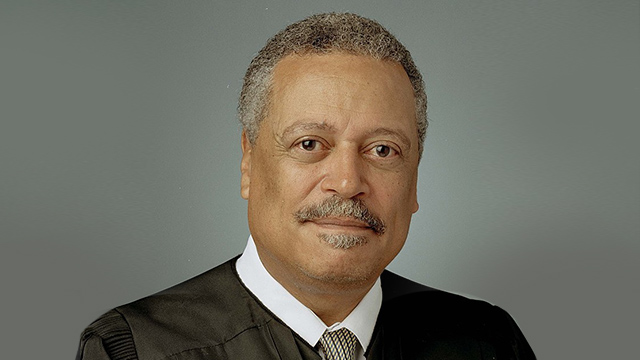


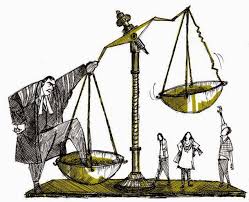



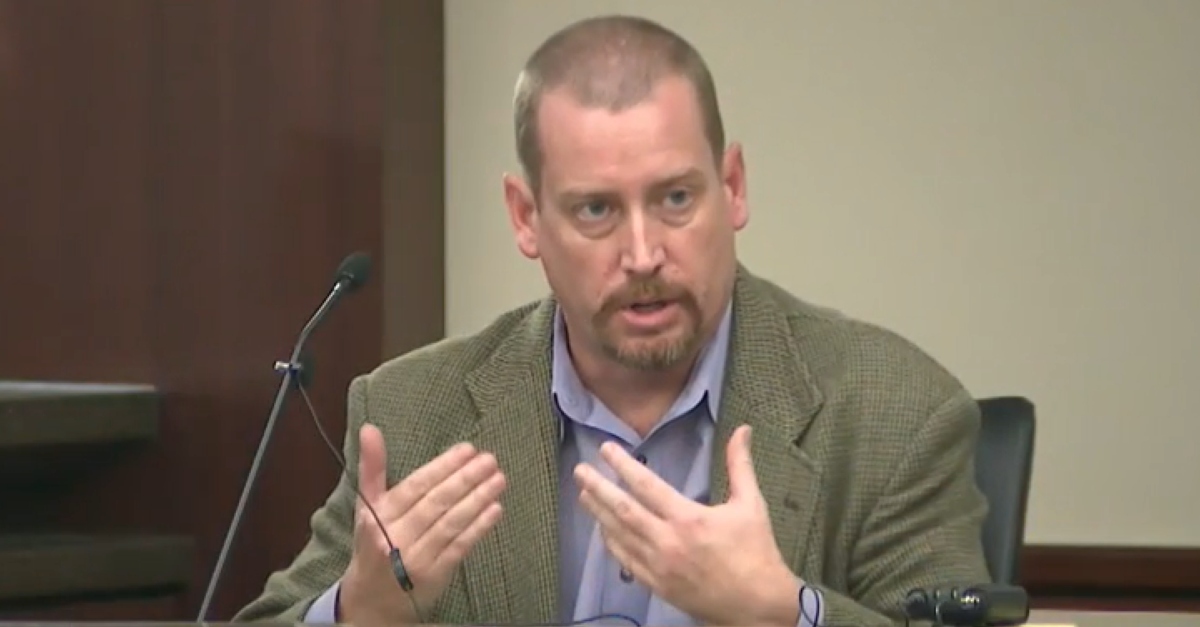
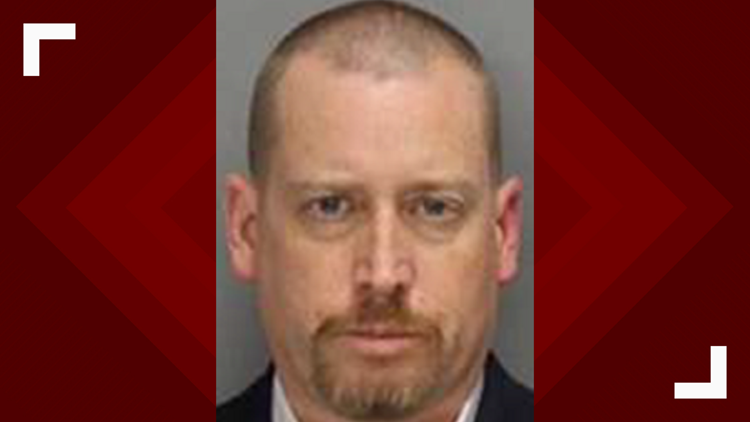
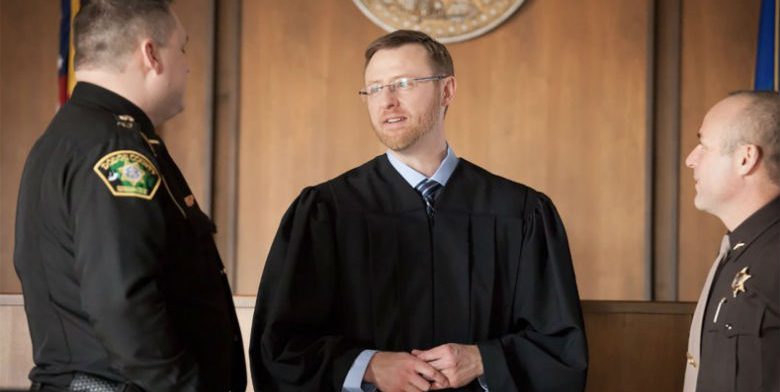
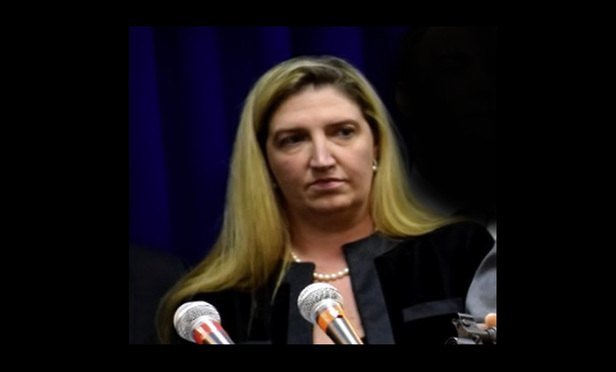
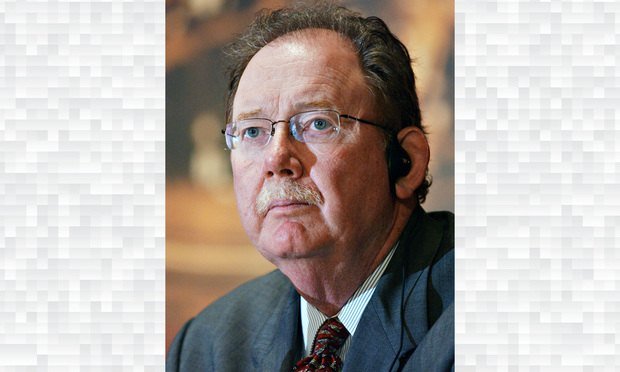
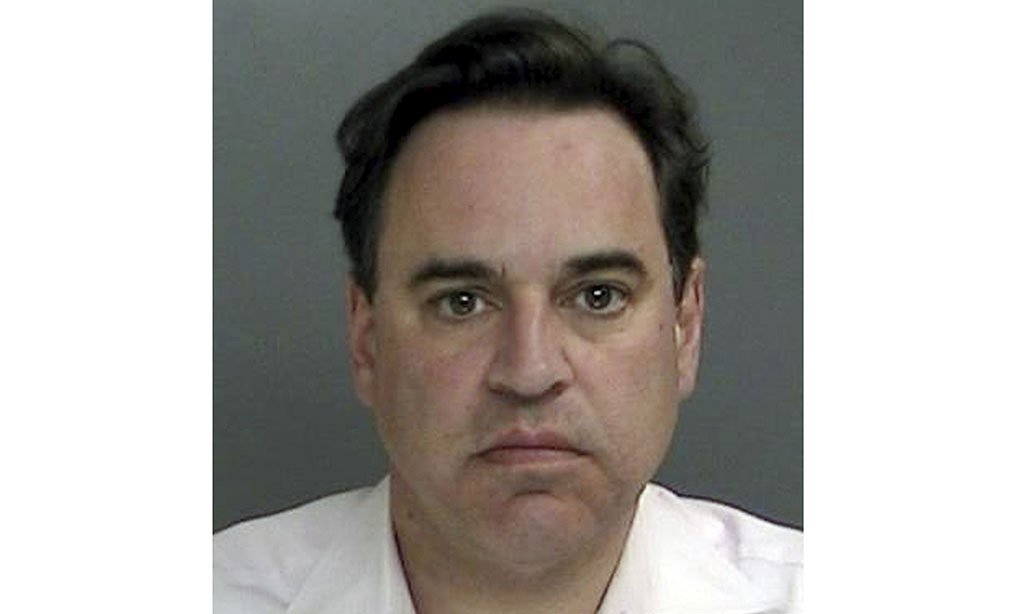
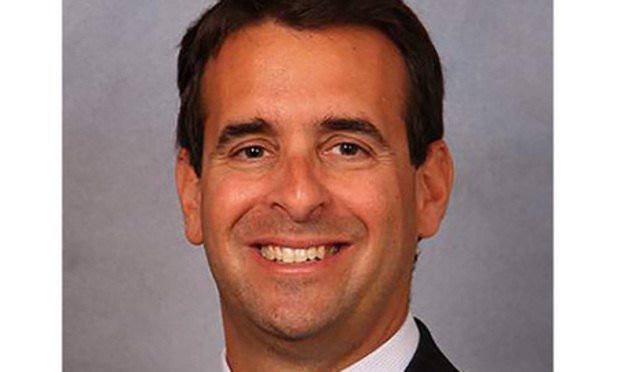
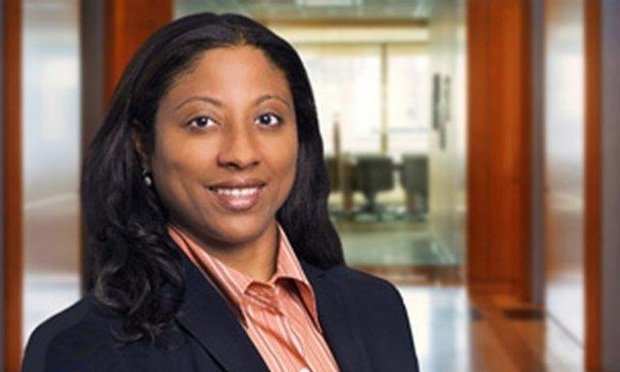
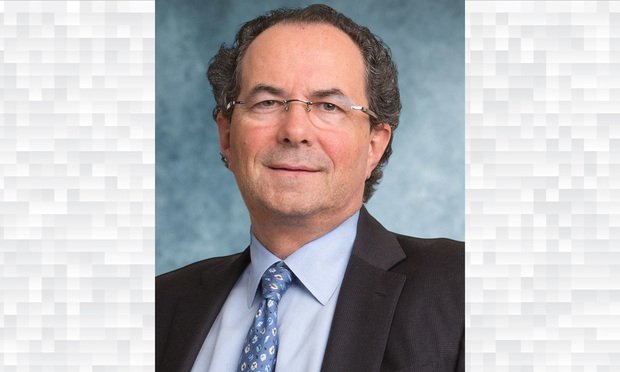
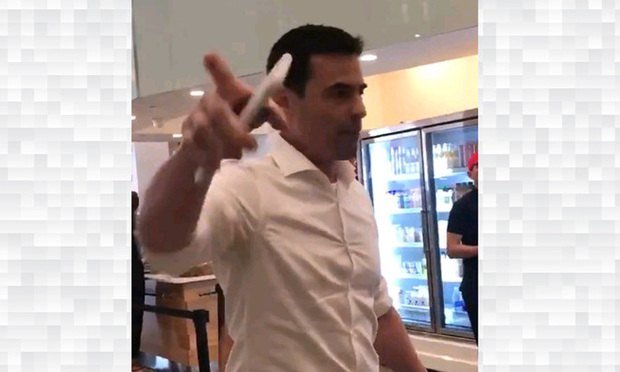




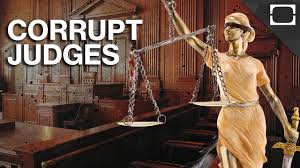


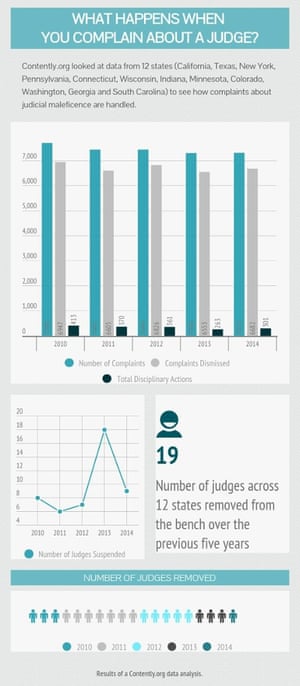






 detected in [a] 2013 meat samples due to the Fukushima Japan nuclear accidents. This detection occurred… in October… [DCPP] detected cesium within milk, vegetation, and meat throughout 2011 [and] continued to detect cesium within groundwater, fish, vegetation, and meat throughout 2012.
detected in [a] 2013 meat samples due to the Fukushima Japan nuclear accidents. This detection occurred… in October… [DCPP] detected cesium within milk, vegetation, and meat throughout 2011 [and] continued to detect cesium within groundwater, fish, vegetation, and meat throughout 2012.




